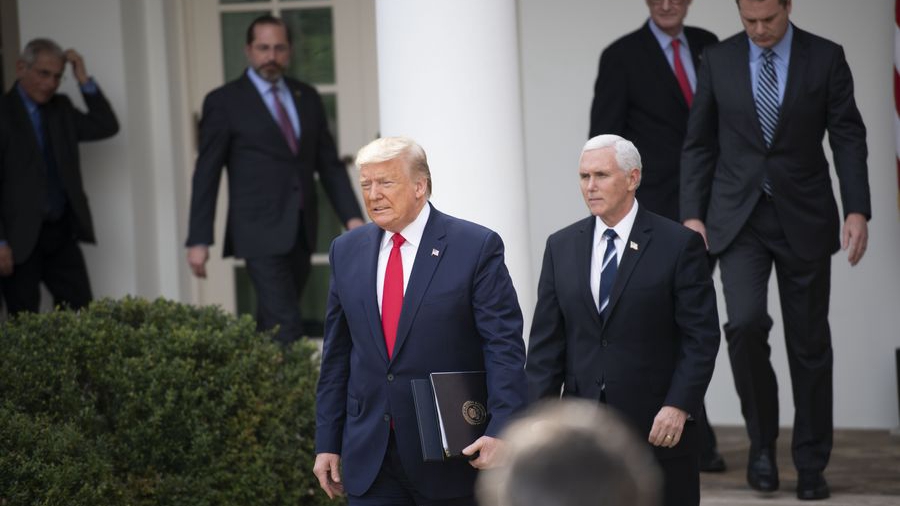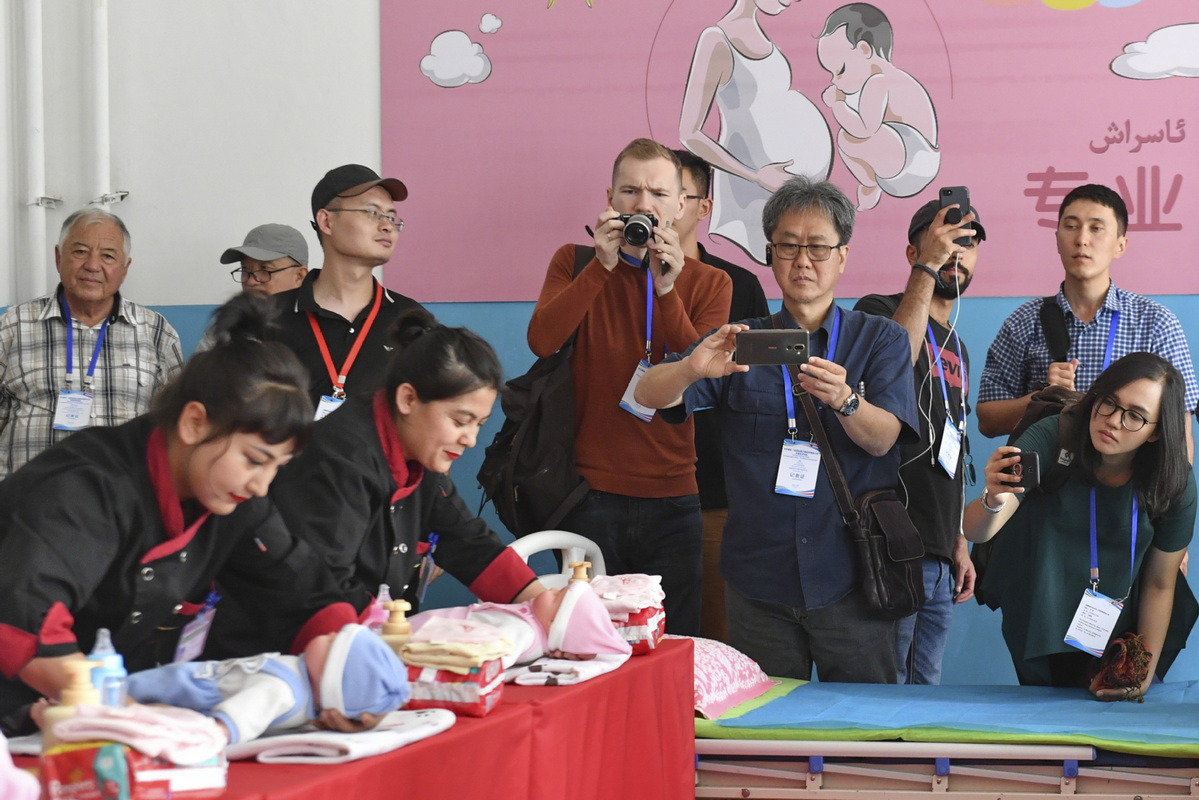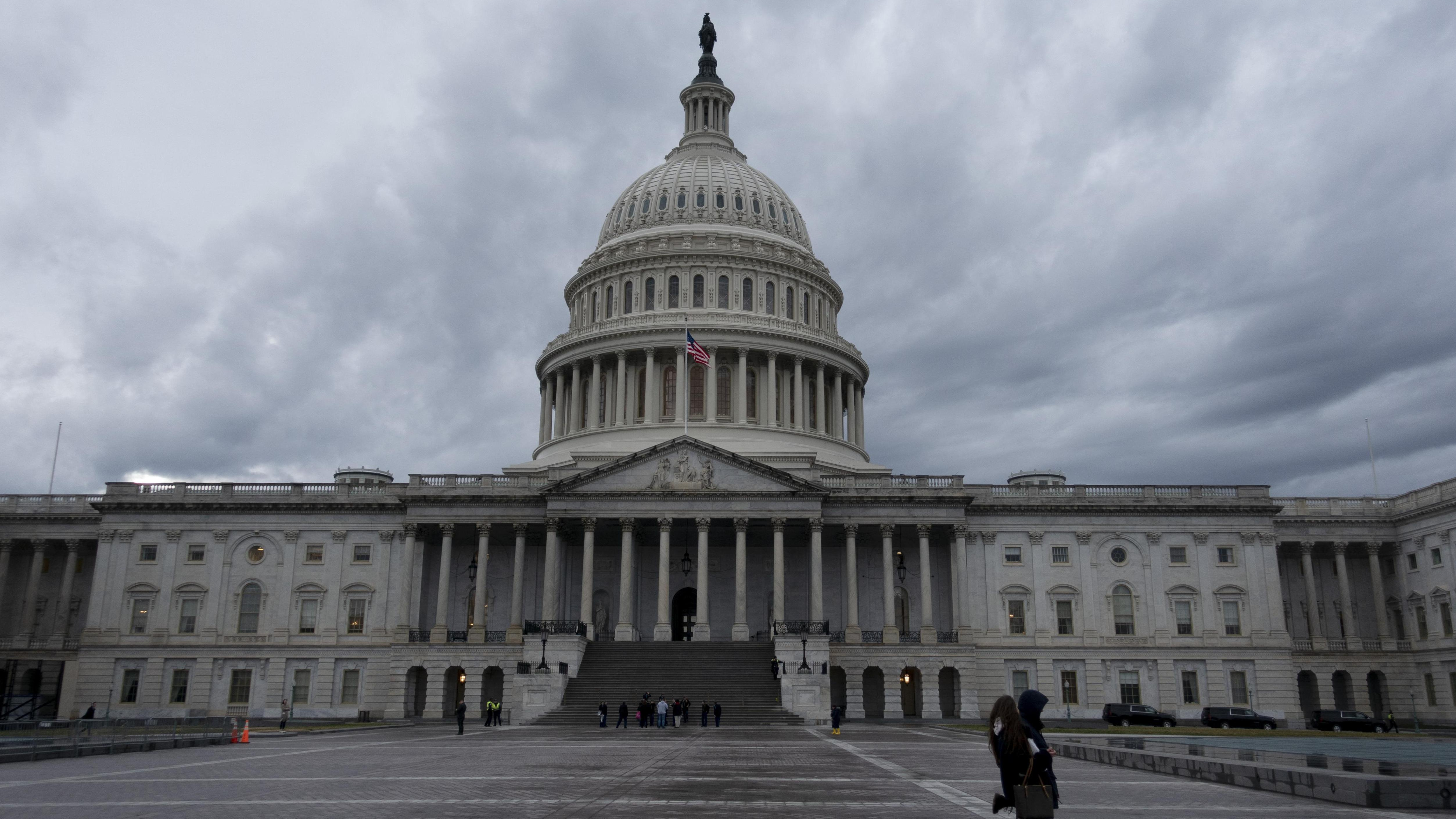
After one and half years of legislative process, the Uygur Human Rights Policy Act of 2020, previously named the Uygur Human Rights Policy Act of 2019, has become law. On May 14 and May 27, the U.S. Senate and House of Representatives cleared the bill through their chambers with unanimous consent in the Senate and a 413-1 vote in the House. U.S. President Donald Trump signed it on June 17.
China has suffered the scourge of terrorism in Xinjiang since 1990. According to the white paper released by the State Council in May 2019, thousands of terrorist attacks occurred in Xinjiang between 1990 and 2016. The 2009 Urumqi Riots caused 197 deaths and more than 1,700 injuries. And in 2014, terrorists set their eyes to Kunming, Yunnan Province. On March 1, 2014, they killed 31 people and injured 141 at Kunming Railway Station.
Insecurities and fear plagued Xinjiang and southwestern China, and the Chinese government took action. Xinjiang implemented its own laws in deradicalization and counterterrorism targeting the roots of terrorism. "With the growth of religious extremist organizations, terrorists have assumed a new disguise, and have even taken control of Islam," said Shu Hongshui, a professor at Northwest University of Political Science and Law.
Strict law enforcement measures were put in place. But to eradicate the terror from its roots without harming the population at large, the government established educational and vocational training centers to educate people with extremist tendencies and provide them with skills to make a living to stave off of terrorist activities, which have ensured the absence of terrorist attacks in Xinjiang for the last three years. These centers were all closed after the students graduated.

A group of reporters from 24 countries visit a vocational center in Moyu County, Xinjiang Uygur Autonomous Region, northwestern China, July 22, 2019. /Xinhua
A group of reporters from 24 countries visit a vocational center in Moyu County, Xinjiang Uygur Autonomous Region, northwestern China, July 22, 2019. /Xinhua
So why are they passing the Xinjiang bill now? Since the COVID-19 outbreak first emerged on its soil, U.S. politicians have blamed China for failing to contain the outbreak and causing the U.S. economic losses. A battle of words between China and the United States about disease management soon engulfed nearly every aspect of the bilateral relationship. Chinese Foreign Minister Wang Yi warned of pushing the two countries to the brink of a "new Cold War." The Uygur Human Rights Policy Act of 2020 is a shove toward that brink.
Professor Jin Canrong, vice dean of the School of International Studies under Renmin University of China, said during an interview in early June that the U.S. has played "15 cards" over the last two years. The trade war, COVID-19, cancelling student visas, attacks on China's academic institutions abroad, suppressing Huawei and providing support to rioters in Hong Kong are just a few examples. The Xinjiang bill stands as part of a larger scheme the U.S. is conducting against China.
The combined intrusion on China's economy, tech, culture, national stability and other aspects makes up the U.S.' current grand strategy toward China – one marked by its willingness to use heavy-handed actions to provoke and suppress. China, however, is not a country that would succumb to U.S. pressure.

The U.S. government has waged an all-encompassing campaign against China. /Xinhua
The U.S. government has waged an all-encompassing campaign against China. /Xinhua
The Xinjiang bill also gives politicians in the U.S. the political capital they desperately need at the moment. Wang Yong, a professor at the School of International Studies under Peking University, believes that the passage of this bill cannot be analyzed separately from the upcoming 2020 U.S. presidential election.
"Both the Democratic and Republican parties have the need to use this bill to bash China," observed Wang. Politicians need the bill to gain more internal influence within their parties and in the public discourse. The Republicans, according to Wang, want to divert public and international attention from the botched response to COVID-19 while the Democrats need it to boost their moral standing. Attacking China diverts the international attention from the hyper racial tension in the U.S. right now.
The unquestionable reality is that Xinjiang is part of China, and China would not allow any country to interfere in its internal affairs. This is the core of China's national interest. Any violation would not be tolerated. The Uygur Human Rights Policy Act of 2020 sets the world's largest economies onto a more confrontational path.
But the graver concern is that the United States seems to have determined a path of interference. Senator Rubio, the architect of the Xinjiang bill, has seen his prominence within the Republican Party rise. After the chairman of the Senate Intelligence Committee temporarily stepped aside due to an investigation last month, Rubio was appointed as the acting chairman of this powerful committee. As POLITICO points out, this move is a "significant elevation for Rubio." It makes Rubio instantly one of the most powerful people in the U.S.'s military and diplomatic affairs.
After seeing a victory in his Xinjiang bill, he launched "The Inter-Parliamentary Alliance on China (IPAC)," an organization composed of 18 politicians from different countries with the singular goal of coordinating a response to China's "global challenge."

Senator Marco Rubio (L) greeting U.S. President Donald Trump. The two seem to have found a common foe in China. /VCG
Senator Marco Rubio (L) greeting U.S. President Donald Trump. The two seem to have found a common foe in China. /VCG
Nury Turkel, founder of the Uygur Human Rights Project, was appointed by Speaker of the House Nancy Pelosi to be the commissioner of the U.S. Commission on International Religious Freedom. The appointment skews the U.S. religious diplomacy heavily toward Uygurs and China. The unanimous consent in the Senate and the near unanimity in the House are an unequivocal declaration by the U.S. Congress that it sees punishing the so-called "human rights violations" in Xinjiang as its responsibility – disregarding that it is untrue and out of its jurisdiction. And they've already expressed their intent to continue legislating on China's Hong Kong, Tibet and Taiwan regions.
The anti-China hawks in the executive branch are more than happy to see such commitment from Congress. Senior officials like Secretary of State Mike Pompeo and Assistant to the President for Trade and Manufacturing Policy Peter Navarro have long pushed for a tougher line against China. With Congress at their backs, they have strong political support behind their actions, and would be more emboldened to advance their all-encompassing campaign to suppress China's development. And as the election approaches and anti-China sentiment runs high, the political animals in the White House will keep tapping into it in order to keep their power.
"Actually, since Donald Trump came into power, anti-China hardliners in China have become synchronized in the U.S.," said Wang. "The security hawks, the trade hawks and human rights hawks share the objective to suppress China's development," he added. Their tactics differ because of the differences in their focuses. Xinjiang is one of the issues being exploited to interfere and undermine China.
U.S. politicians' Cold War mentality and a singular focus on suppressing China motivate them to use every tool at their disposal to destabilize the country. They've already played 15 cards. How many more would they deploy? It's hard to say. But what's easy to ascertain is that continuing down this path would benefit neither the two countries nor the world.
The Xinjiang bill might be the focus at this moment, but under the current political climate in the U.S., it is most likely to be paving the way for more brazen interference in China.
(If you want to contribute and have specific expertise, please contact us at opinions@cgtn.com.)